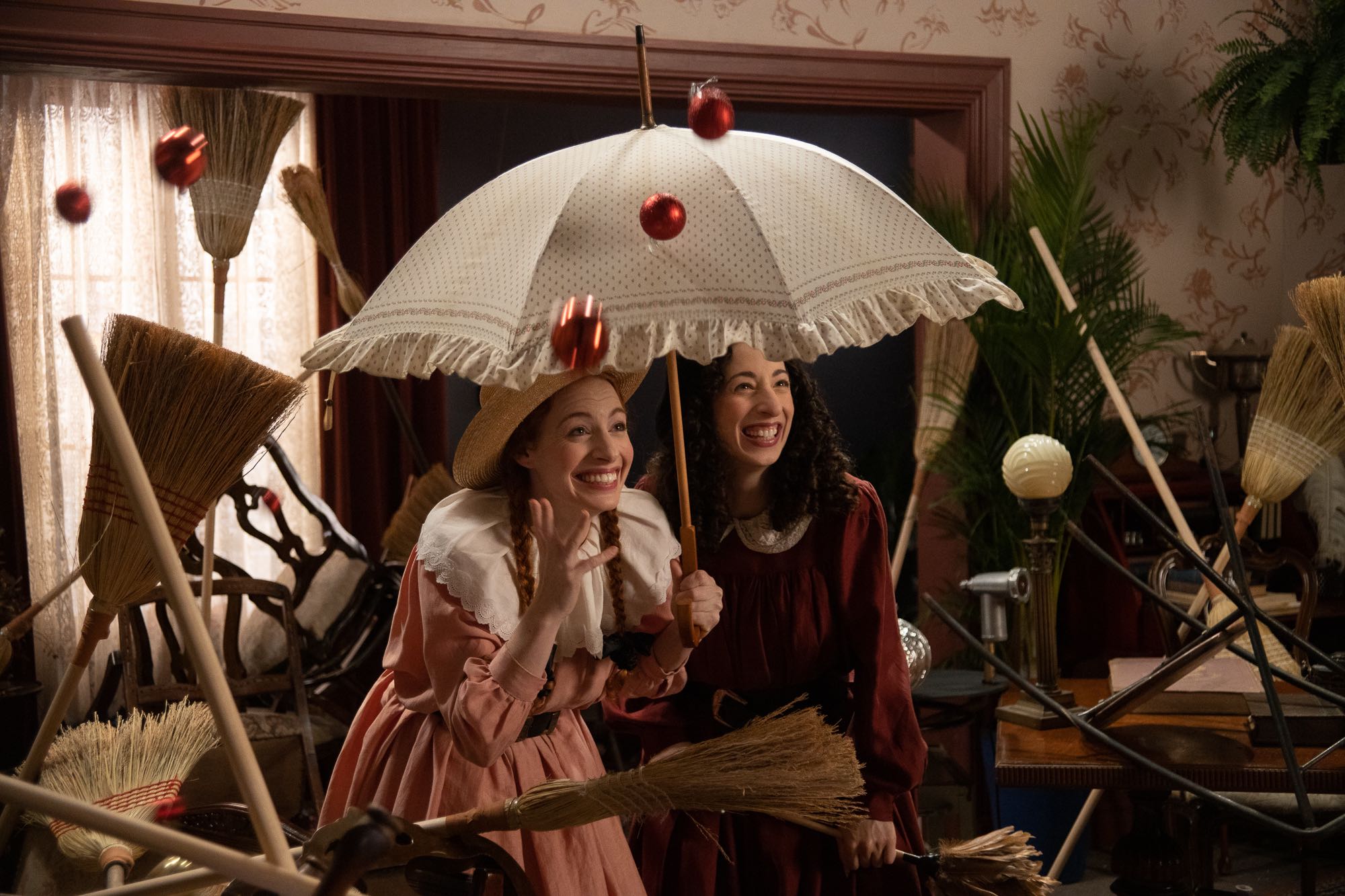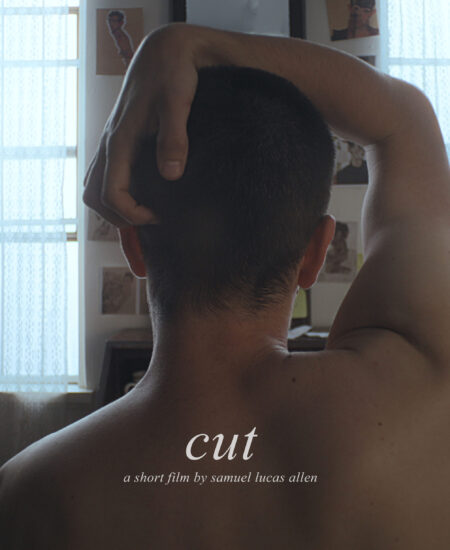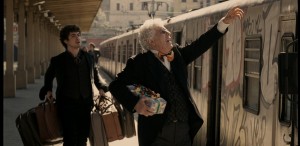 Hemant has a groom’s procession, arriving on a horse; and, of course, the bride is beautiful. It rains, torrential rain (the monsoon that follows summer)—and a long-awaited young man arrives, Umang (Jas Arora), and exchanges glances with Ria. The rain further washes away formality and pretense. Everybody dances.
Hemant has a groom’s procession, arriving on a horse; and, of course, the bride is beautiful. It rains, torrential rain (the monsoon that follows summer)—and a long-awaited young man arrives, Umang (Jas Arora), and exchanges glances with Ria. The rain further washes away formality and pretense. Everybody dances.
Category: Film Reviews
A review of Breaking Plates
 Walls fall down and characters burst out of the window, singing, dancing, shouting and breaking plates. The answer is clear that these structures, which seem so solid, are fragile indeed and it’s always possible to burst forth. Breaking Plates is utterly relevant and terrific fun, a film to watch repeatedly for the sheer joy of it, and to make our own conversations with the wild women of the past.
Walls fall down and characters burst out of the window, singing, dancing, shouting and breaking plates. The answer is clear that these structures, which seem so solid, are fragile indeed and it’s always possible to burst forth. Breaking Plates is utterly relevant and terrific fun, a film to watch repeatedly for the sheer joy of it, and to make our own conversations with the wild women of the past.
That Awful Confrontation of Body and Will: Dancers Nureyev (Oleg Ivenko) in The White Crow (Ralph Fiennes, 2018) and Baryshnikov (as Nikolai) in White Nights (Taylor Hackford, 1985)
 Ballet is dance—it is delicate movements set to music, illustrating a tale: it is adagio (slow movements) and allegro (rapid movements) and arabesque (the body’s weight on one leg, with the other leg aloft, backward) and changement (change of feet) and fifth position (the heel of one foot against the toe of another, the two feet close, turned out) and plie (bending of a standing leg) and sauté (jump); and it is the life, the creative work, Rudolf Nureyev wanted.
Ballet is dance—it is delicate movements set to music, illustrating a tale: it is adagio (slow movements) and allegro (rapid movements) and arabesque (the body’s weight on one leg, with the other leg aloft, backward) and changement (change of feet) and fifth position (the heel of one foot against the toe of another, the two feet close, turned out) and plie (bending of a standing leg) and sauté (jump); and it is the life, the creative work, Rudolf Nureyev wanted.
A review of CUT by Samuel Lucas Allen
 CUT is a film that is, quite frankly, unforgettable. As a coming-of-age story, Daniel’s transition is one that well, cuts deeply while allowing the visuals and music to do most of the talking. The production is excellent, and the music, cinematography and consistently top notch acting makes for an emotive and deeply moving film which with wide appeal.
CUT is a film that is, quite frankly, unforgettable. As a coming-of-age story, Daniel’s transition is one that well, cuts deeply while allowing the visuals and music to do most of the talking. The production is excellent, and the music, cinematography and consistently top notch acting makes for an emotive and deeply moving film which with wide appeal.
A review of Karen Pearlman’s Woman with an Editing Bench, After the Facts, and I want to make a film about women
 Collectively, the films present a compelling story of quiet tenacity, talent, and artistic determination. The films are all exquisite, featuring a distinctive blend of narration by Pearlman overlaying an Expressionist montage of documentary images, storytelling, and visual imagery to create seamless shifts between past and present, inner life and outer, and the creative process versus the finished film.
Collectively, the films present a compelling story of quiet tenacity, talent, and artistic determination. The films are all exquisite, featuring a distinctive blend of narration by Pearlman overlaying an Expressionist montage of documentary images, storytelling, and visual imagery to create seamless shifts between past and present, inner life and outer, and the creative process versus the finished film.
Friendship and Historical Materialism in Raoul Peck’s The Young Karl Marx
 Raoul Peck’s film, begins with the young philosopher Karl Marx’s critique of the persecution of desperate peasants, who go into forests to gather dead wood, something considered theft, for which they were arrested or beaten or even killed. Marx, a passionate but poor writer married to a well-born woman, was censored for his examination of political power.
Raoul Peck’s film, begins with the young philosopher Karl Marx’s critique of the persecution of desperate peasants, who go into forests to gather dead wood, something considered theft, for which they were arrested or beaten or even killed. Marx, a passionate but poor writer married to a well-born woman, was censored for his examination of political power.
A review of The Blackcoat’s Daughter
 Now, we are witnessing perhaps the most substantial change to the horror formula to date and the rise of a new sub-genre. These modern films focus far less on gratuitous violence and concern themselves more with a journey that leads us to tragic ends. This new crop of horror is more cerebral, less conventional—films which have been called “art house horror”—even “post-horror.”
Now, we are witnessing perhaps the most substantial change to the horror formula to date and the rise of a new sub-genre. These modern films focus far less on gratuitous violence and concern themselves more with a journey that leads us to tragic ends. This new crop of horror is more cerebral, less conventional—films which have been called “art house horror”—even “post-horror.”
Another Dodge in a System of Dodges: Evasion of Responsibility in What Maisie Knew, Book and Film
Henry James created characters able to embody his concern for elegance, intelligence, morality, and social ritual; and his work attains intellectual and spiritual dimension of a high degree—and his style, thoughtful, textured, teasing, can be complex to the point of profound obscurity, requiring attention, consideration, and deep understanding. The drama is increased for all that.
A review of Macbeth directed by Justin Kurzel
 Faced with the prospect of a dreary peace, Macbeth the triumphant warrior goes for the main prize: King Duncan’s crown. It is an exhilarating adaptation of Shakespeare’s great tragedy but I feel that the emphasis is sometimes misplaced or even absent. For example, Lady Macduff’s ‘I have done no harm’ speech, usually the most moving in the whole play, is delivered while she’s on the run from murderers. They can’t hear her, we wonder why she’s starting a conversation. Run faster, woman.
Faced with the prospect of a dreary peace, Macbeth the triumphant warrior goes for the main prize: King Duncan’s crown. It is an exhilarating adaptation of Shakespeare’s great tragedy but I feel that the emphasis is sometimes misplaced or even absent. For example, Lady Macduff’s ‘I have done no harm’ speech, usually the most moving in the whole play, is delivered while she’s on the run from murderers. They can’t hear her, we wonder why she’s starting a conversation. Run faster, woman.
A review of Pasolini
 It’s an uncompromising film by Abel Ferrara, quite in keeping with Pasolini’s own oeuvre, and he has made it in his own distinct way. Some scenes are straight forward, understated even, while others have a visionary quality. However, you always feel that Ferrara is in control of his material
It’s an uncompromising film by Abel Ferrara, quite in keeping with Pasolini’s own oeuvre, and he has made it in his own distinct way. Some scenes are straight forward, understated even, while others have a visionary quality. However, you always feel that Ferrara is in control of his material